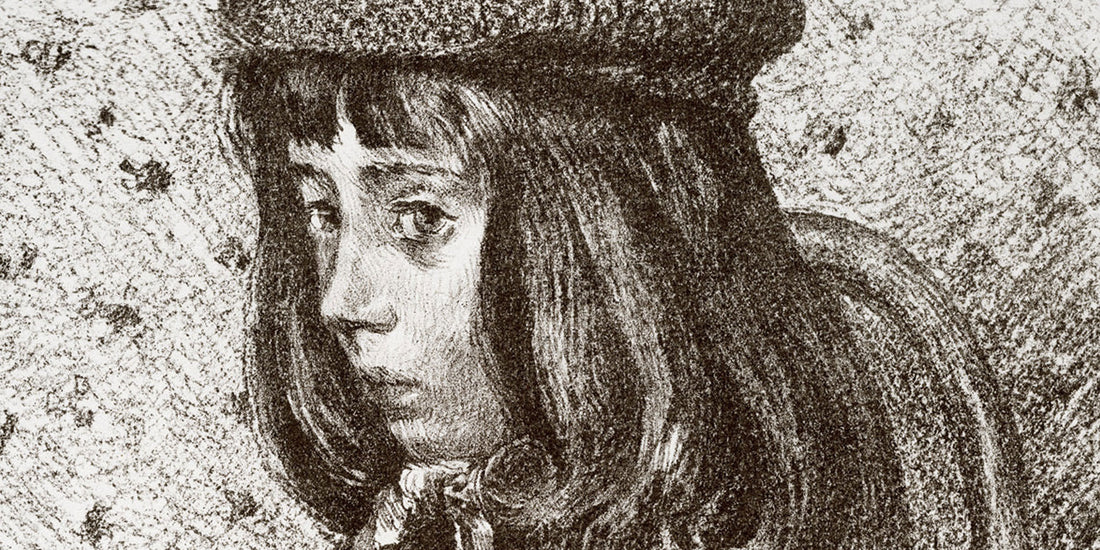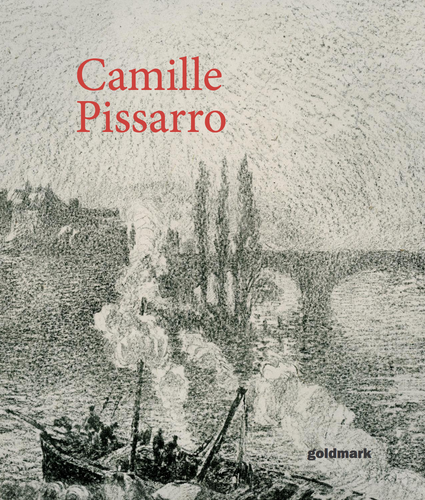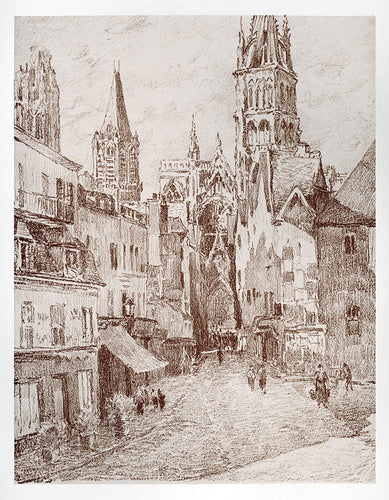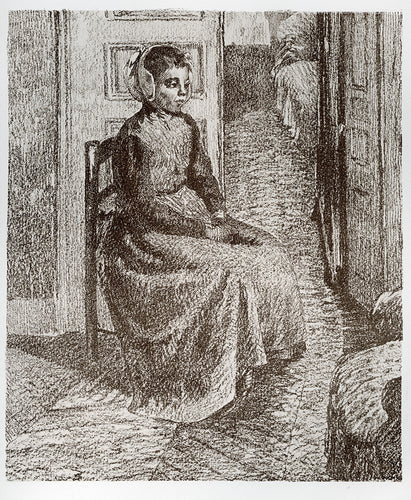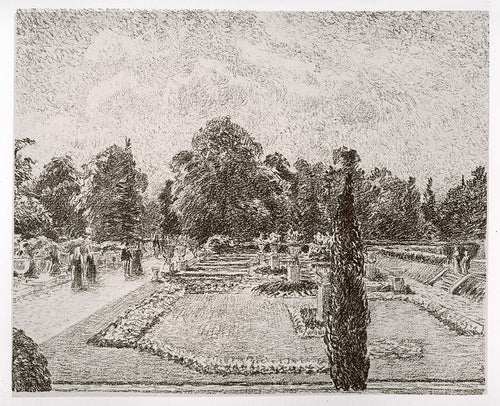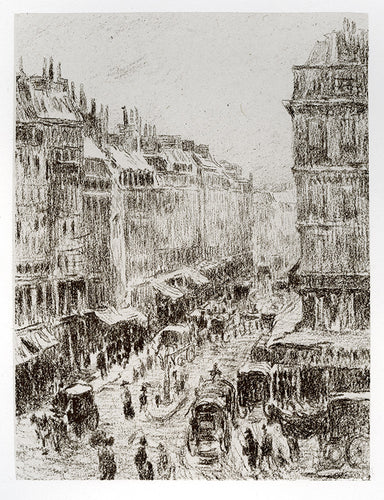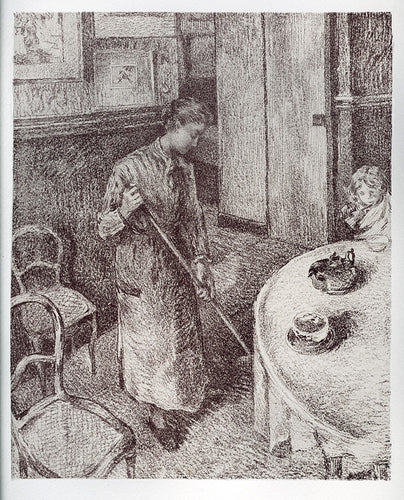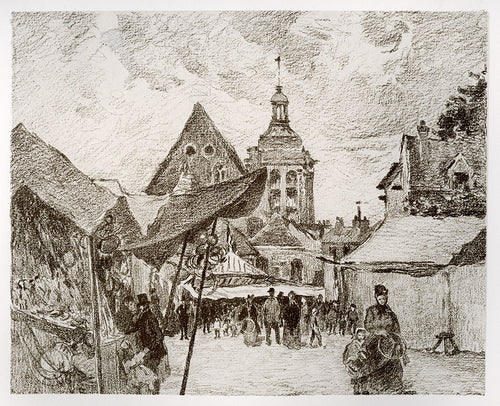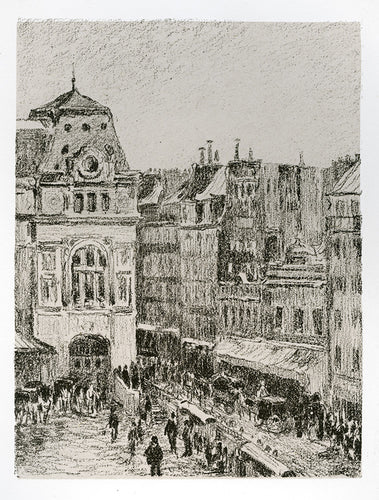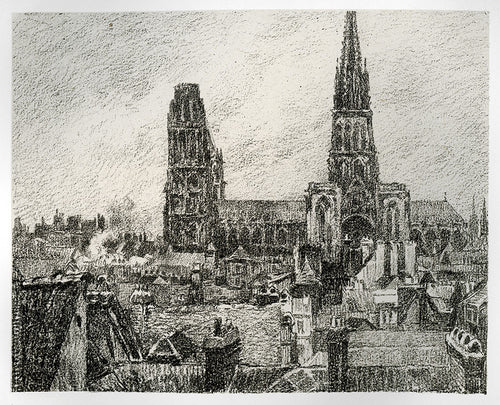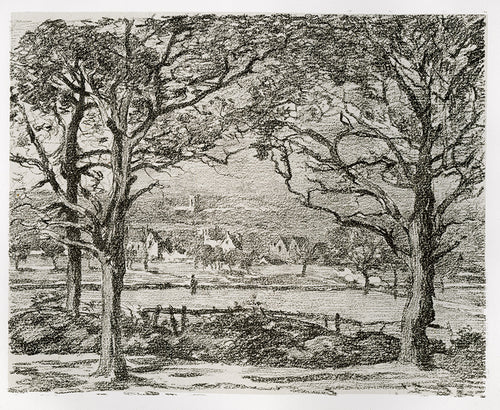As the paternal voice of Impressionist painting, Camille Pissarro was undoubtedly one of the most influential artists of the 19th century. Less well known is his immense contribution to the printmaking of that movement, in which he was the most prolific - and certainly most original - of the peintre-graveurs. The earlier years of his printmaking, from 1879-82, were filled with experimentation and innovation in etching and lithography, Pissarro constantly reworking or changing plates and trialling new techniques with each impression.
 ‘the most prolific of the peintre-graveurs’ – a typical Pissaro town-scene
‘the most prolific of the peintre-graveurs’ – a typical Pissaro town-scene
Despite the enormous enjoyment of working with prints, which Pissarro saw as an art equal in value to oil painting, there was little demand for his work during his lifetime. Ever the self-deprecating critic, Pissarro considered his achievements as amateurish: what a pity, he writes, there is no demand for my prints, I find this work as interesting as painting, which everybody does, and there are so few who achieve something in engraving. They can be counted.
 La Batterie à Montfoucault
La Batterie à Montfoucault
Counted, Pissarro would be; but not without encouragement. Despite various successes in etching and drypoint, his forays into lithography were less frequent. After producing just one series of twelve lithographs in 1874, at the very advent of the Impressionist movement, Pissarro abandoned the medium. Rejecting the approaches of professional printers with whom he was reluctant to work, he would not attempt any impressions for another twenty years.
 'a lifetime of experience and a honed impressionistic eye'
'a lifetime of experience and a honed impressionistic eye'
It was thus almost by chance that Pissarro ever produced any lithographs in his later life. Print publishers such as Ambroise Vollard and André Marty were championing the original lithograph throughout the 1890s and their invigoration provided Pissarro with an impetus to return to the medium (though he vehemently ignored the mainstream demand for full-colour prints, continuing to work almost exclusively in black and white). His distrust of professional printers remained, however. To Pissarro, the inking, choosing of the paper coloration and pressing of the plates were processes integral to the artform: who could better envision and achieve their effects than the artist himself?
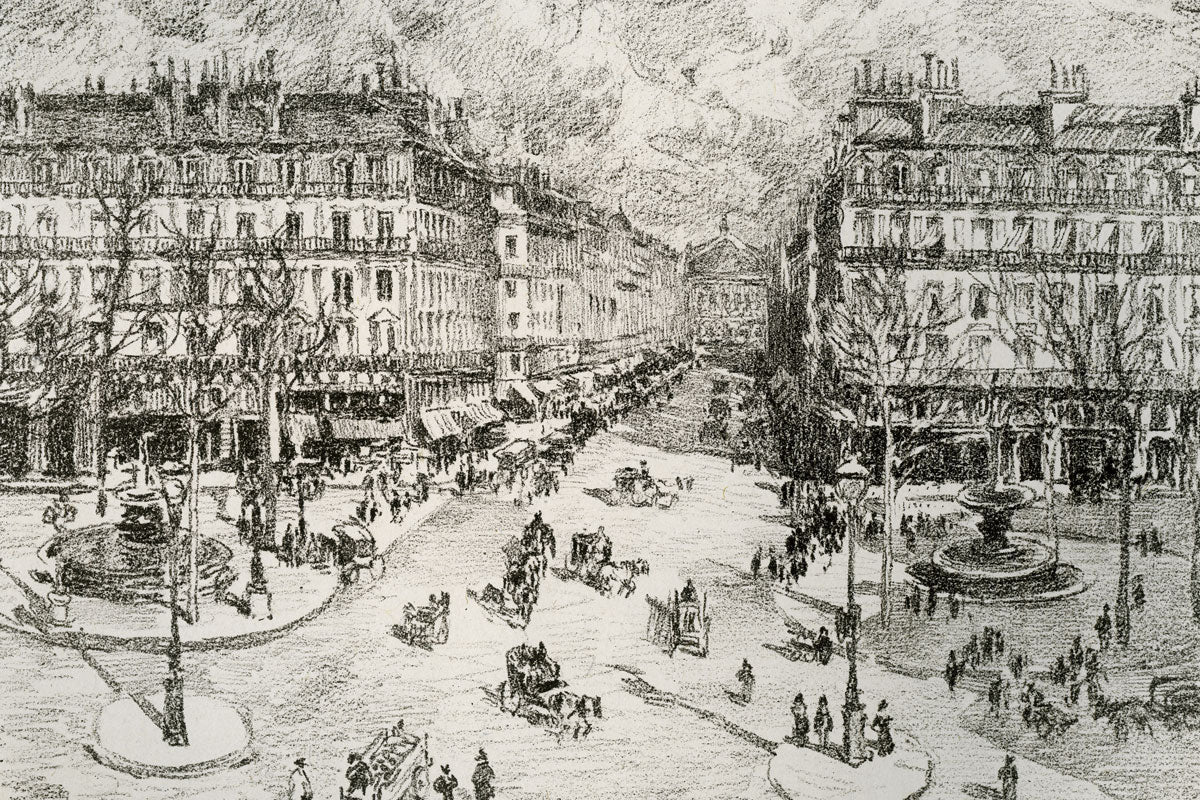 'prodigious technique and sensitivity' - Thornley's portfolio included work for Degas
'prodigious technique and sensitivity' - Thornley's portfolio included work for Degas
That Pissarro felt comfortable approaching French lithographer Georges Thornley was testament to the printer’s prodigious technique and sensitivity. The talented son of a Welsh immigrant, Thornley offered his cooperation in producing a series of plates based on the artist’s paintings, and the two developed a rewarding working relationship. Pissarro had no doubt been convinced of Thornley’s ability after witnessing his previous joint ventures with dealer Theo Van Gogh, brother to Vincent, and Edgar Degas, with whom Pissarro had also collaborated extensively in the past, as well as his outstanding interpretations of drawings by Puvis de Chavannes.
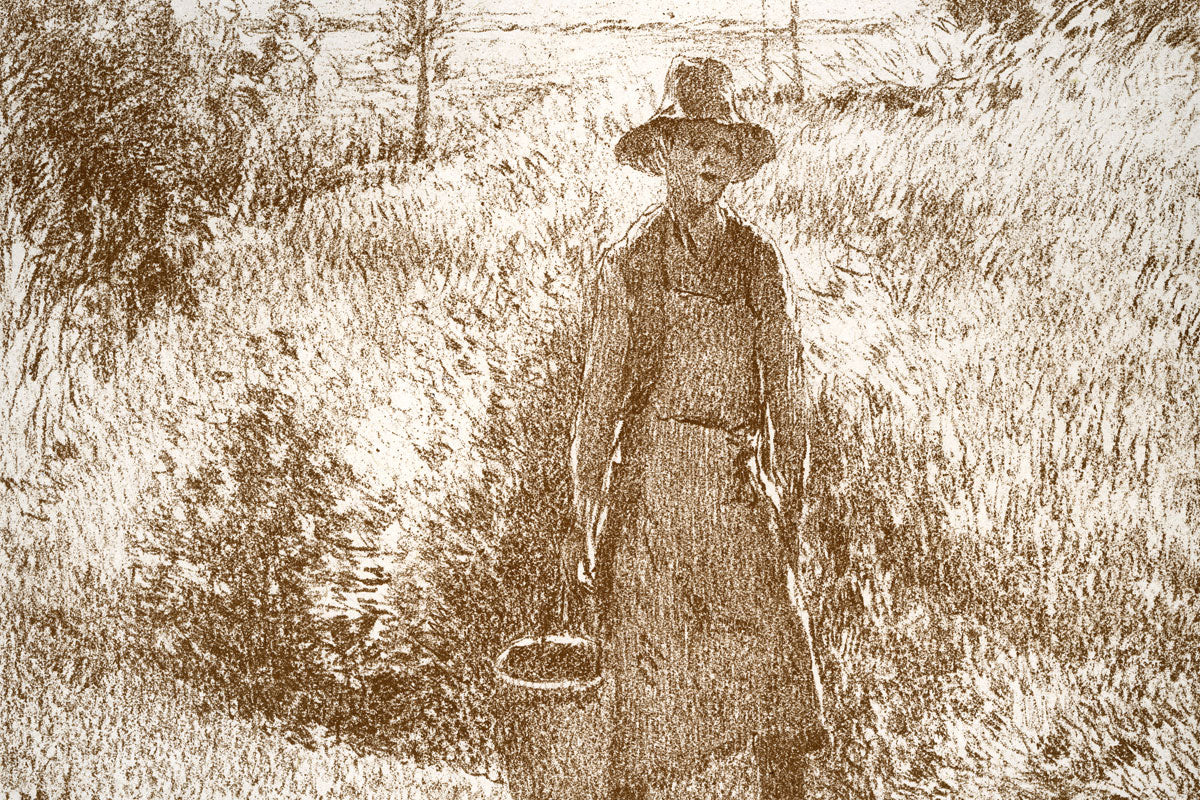 'honest, unrefined simplicity' - a gardener shaded beneath the midday sun
'honest, unrefined simplicity' - a gardener shaded beneath the midday sun
The partnership proved a huge success. A portfolio was designed with twenty-five lithographs, executed by Thornley after Pissarro’s oils and published in Paris, around 1895, in an edition size of 108, each artist signing the inserted justification page.
 'peasant girls and splendid town houses'
'peasant girls and splendid town houses'
An embodiment of the honest, unrefined simplicity that is so typical of Pissarro’s work - we see peasant girls working the fields in these prints as often as we do splendid town houses - the series represents an immensely significant period of Pissarro’s output: the artist’s successful return to a once-tried form, in which a lifetime of experience and a honed impressionistic eye were put to exquisite use.
 'gentle portraits and calming vignettes' - a portrait of Pissarro's young relative
'gentle portraits and calming vignettes' - a portrait of Pissarro's young relative
Speaking on the pleasures of art, Pissarro remarked that ‘all the sorrows, all the bitternesses, all the sadnesses, I forget them and ignore them in the joy of working.’ Looking at Pissarro’s prints - at the gentle portraits and calming vignettes - we too can feel that humble joy as earnestly as the artist.
